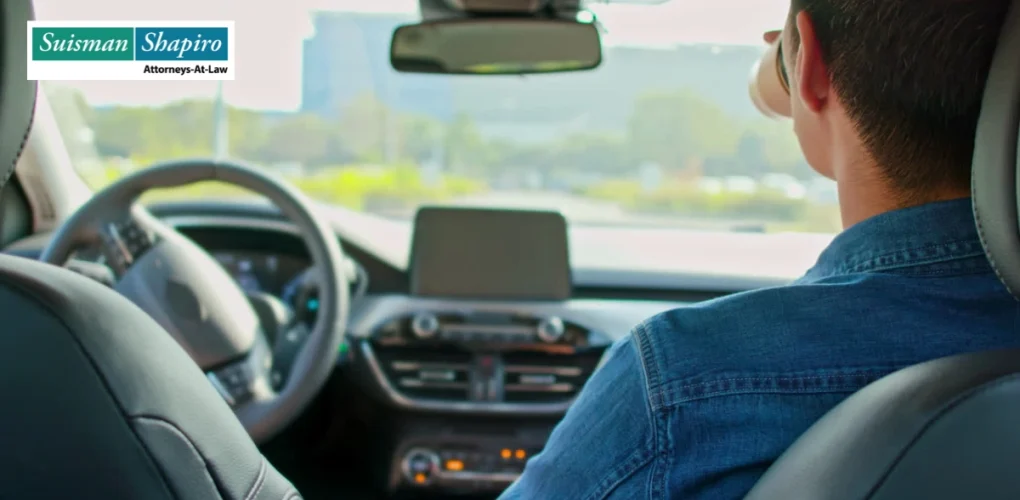|
|
Last Modified on Oct 12, 2025
In today’s world, self-driving cars are becoming more and more common on the road. Because of this, important questions regarding safety and liability are being raised. Many citizens are asking: Who is responsible in a self-driving car accident in Connecticut? Despite the promises of convenience from autonomous driving technology, accidents involving such vehicles can cause great uncertainty about who is at fault according to the law.
Self-Driving Cars: How They Work and Why Liability Is Complex
ADS (autonomous driving systems)-equipped vehicles function by using cameras, radars, GPS, sensors, and artificial intelligence (AI) systems. These systems are designed to gather data and conduct split-second decisions regarding steering, speed, braking, and overall awareness of other vehicles on the road.
In the event something goes wrong, such as a system malfunction, a faulty sensor, or a human’s inability to intervene effectively, establishing liability can involve numerous parties.
Liability can include:
- The human behind the wheel
- The vehicle’s manufacturer
- A sensor or software developer
- A company that oversees a fleet of self-driving vehicles
- A supplier of parts
- Another driver who was being negligent
Knowing exactly what took place requires thorough investigation, educated analysis, and knowledge of how self-driving car accident cases are investigated according to Connecticut law. In 2024, the United States saw a total of over 500 accidents involving ADS-equipped vehicles. Such a number highlights how important having solid representation can be in the event you become a part of that statistic.
Self-Driving Vehicle Liability: How It’s Handled in Connecticut
As of right now, Connecticut does not have a separate liability statute for self-driving vehicles. In its place, the state leans on already-in-place Connecticut car accident laws, such as:
- Vehicle owner responsibility
- Product liability
- Defects in software or manufacturer design
- Distraction or recklessness displayed by the driver
- Negligence
Simply put, this means there is no immediate assumption that a self-driving car or the company that manufactured it is at fault. Commonly, liability is established on a case-by-case basis. Data from 2024 shows that the autonomous vehicle market size hit $68.1 million.
As technology continues to improve, it’s clear that these vehicles are going to become increasingly prominent. If time in court is needed, cases are usually held at the New Haven Judicial District Court, located at 235 Church Street, New Haven, CT 06510.
Who Is Usually Found at Fault?
Of the many possible scenarios, the following are common parties to be found at fault during self-driving car accident cases:
- Human drivers. Regardless of how advanced a vehicle’s automation is, drivers are usually required to hold firm attention. If a driver is unable to do so and fails to take control when necessary, they may be seen as liable.
- Manufacturer of the vehicle. If an accident takes place because of a malfunction in the self-driving system, the manufacturer can legally be held responsible.
- Software developers. Some vehicles are integrated with outside AI systems. If a failure in software resulted in the accident, responsibility could be bestowed upon those who created the software.
- Rideshare companies or fleet managers. If a delivery company or rideshare service utilizes self-driving vehicles, such companies can be held responsible for failure to abide by safety regulations, inadequate maintenance, or faulty system updates.
- Surrounding drivers. In some cases, the self-driving car is completely free from responsibility because another driver could have been texting, speeding, or conducting a dangerous maneuver.
Next Steps: Hire a Car Accident Lawyer
Accidents involving self-driving cars carry complicated investigations, technological evidence, and numerous possible defendants. This is why making the decision to hire a Connecticut car accident lawyer can help you safeguard your claim and ensure no liable party goes overlooked. Our personal injury attorneys in Connecticut can examine a vehicle’s data logs, study the behavior of a system’s software, correspond with engineers, and push to obtain compensation that accurately reflects the severity of your injuries.
The Aftermath of Self-Driving Car Accidents
If you were struck by a self-driving car or a part of a crash while riding in one, following the coming steps is very important:
- Immediately seek medical attention
- Get in touch with law enforcement
- Keep track of and document as much as possible
- Maintain all digital data
- Consult with a car accident attorney as quickly as possible
Possible Compensation for Self-Driving Car Accidents
Victims who were injured in such car accidents could be eligible for compensation, including the following:
- Wages lost
- Medical costs
- Extended rehabilitation
- Lasting disability
- Damage to property
- Decreased ability to earn
- Overall pain and suffering
FAQs
Who Is Responsible if a Self-Driving Car Crashes?
In car accidents involving self-driving vehicles, responsibility can fall upon the person behind the wheel, the company that manufactured the car, the software developer, or an outside driver. Usually, liability is determined by analyzing data from the vehicle’s system, behavior from sensors, conditions of the road, and actions displayed by the driver at the time of the accident.
Who Regulates Self-Driving Cars in the United States?
In the United States, self-driving cars are regulated by multiple organizations at both the state and federal levels. The National Highway Traffic Safety Administration (NHTSA) establishes national safety precedents, while some states (Connecticut included) monitor vehicle operation, requirements from insurers, and who is able to test and operate self-driving cars on open roads.
What Safety Requirements Apply to Autonomous Vehicles in Connecticut?
In Connecticut, there are specifically enacted rules for testing self-driving cars, which include required safety drivers, reporting regulations, and compliance with the state’s traffic laws. Any organization operating or testing autonomous vehicles in the state is required to follow existing pilot program standards that are intended to keep the public safe and sound.
What Happens if a Driverless Car Hits You?
A car accident involving a driverless vehicle causes an investigation into whether there was a technological malfunction or whether another driver was negligent and at fault. Individuals who were injured in such collisions could pursue compensation through claims with insurance providers or paths regarding product-related liability, depending on the crash’s true cause.
Contact a Connecticut Car Accident Attorney
If you were hurt in a crash involving a car with self-driving technology, you do not have to navigate the aftermath by yourself. Contact the team at Suisman Shapiro Attorneys-at-Law today to speak with a knowledgeable attorney and learn the answer to the question: Who is responsible in a self-driving car accident in Connecticut?





